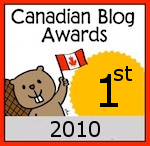Well, it’s finally over. The dust has settled. I’m still alive. And I’m not even terribly sorry that the party I despise most (at least in my home and native land; the world is another story!) has won the election…
Let me explain.
There are 308 seats in the House of Commons. To win a clear majority, a party needs to pull down at least 155 of them. Since Stephen Harper’s Conservatives only took 124 (compared to the Liberals who are now the Loyal Opposition, at 103), that means a minority government. And that’s good news!
Here’s why.
Minority governments, regardless of party stripe, have historically been quite good for Canada. Because the party in power has no popular (“50% plus one”) mandate, it must form alliances with another party (or two, as the case may be) and/or any independent MPs in the House to make up the electoral shortfall. That means a broader spectrum of opinion when it comes time to vote yea or nay on any legislation; it also means more input from smaller parties that might otherwise have no voice. It all boils down to more representation for more Canadians, and less chance that anything too hardline or narrowly self-interested will pass.
Like I said, that’s a good thing.
Now, here’s where it gets interesting. The Liberals, this time around, are the official opposition–a fairly large and powerful one, at roughly one third of the seats. The balance of power is made up of the separatist Bloc Quebecois (51 seats), the social-democrat/environmentalist New Democrats (29 seats), and one independent. Since it is unlikely the cussedly stubborn Bloc, which is long accustomed to its own role as not-so-loyal opposition to les maudits anglais, will consent to an alliance with the Tories, that leaves the New Democrats and the lone independent as kingmakers–maybe.
You’ll notice, if you do the math, that even with all of them on board, the Tories STILL don’t have a majority vote! They fall short by one–and unless someone in the Liberals or the Bloc decides to break ranks (not bloody likely under the circumstances!), that’s where they will bog down.
And that’s what truly makes this a good thing. It means the Tories will have to tread VERY lightly and not push the hard-right agenda they’ve been holding up their sleeve while pretending to be moderates for the purposes of getting elected. They will have to be Red Tories in spite of themselves, because otherwise, they will lose a confidence vote in no time.
And that will mean another election, which they are highly unlikely to win, given their current slack showing.
And THAT is a VERY good thing.



